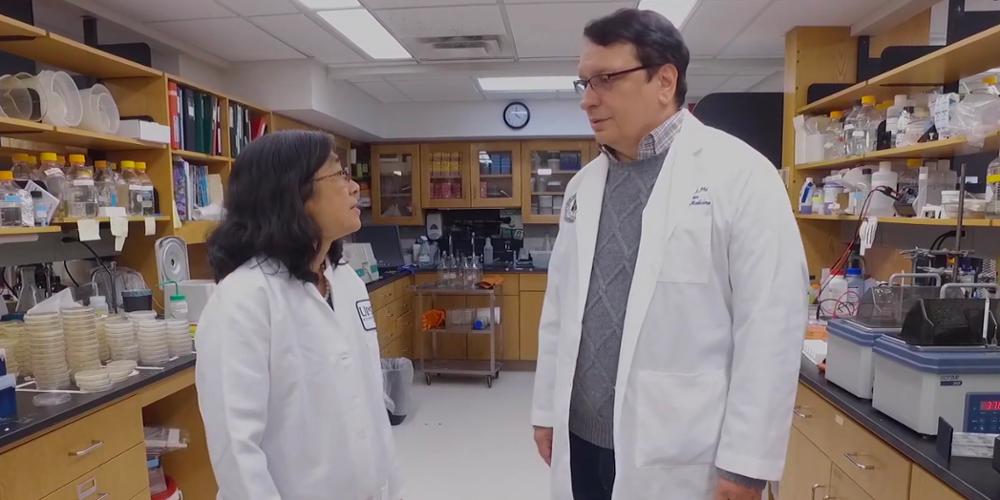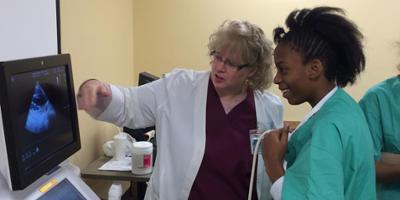New study provides more evidence of link between schizophrenia and gut
Researchers at SUNY Upstate Medical University, along with colleagues at universities in China, provide further evidence of a strong link between schizophrenia and the organisms that reside in the digestive tract.
Schizophrenia is a severe, chronic mental illness that impacts how a person behaves. It’s estimated that about 1.5 million people are diagnosed with schizophrenia annually.
The findings, researchers say, could transform the way schizophrenia is treated.
The breakthrough research is reported in the journal Science Advances.
Upstate researcher Julio Licinio, MD, PhD, a professor of psychiatry, medicine and pharmacology, who also serves as dean of the College of Medicine at Upstate, co-led the study with a team of international researchers who have been searching for the past five years to show the effect of the microbiome on behavior and the brain.
Listen to researchers Julio Licinio, MD, PhD, and Ma-Li Wong, MD, PhD, discuss their research here.
Gut microbiome refers to the microbes that live in the intestines. While people share some of the same microbiomes, most of the organisms differ from person to person.
As part of the study, Licinio and his team, through genetic sequencing of the gut microbiomes of healthy individuals and people with schizophrenia, found a vast difference in the makeup of the microbiomes found in people with schizophrenia. There were far fewer different gut microbiomes in people with schizophrenia.
The next step of the study was to transplant the microbiomes taken from individuals with schizophrenia into germ-free mice.
“The mice behaved in a way that is reminiscent of the behavior of people with schizophrenia,” Licinio said. “The brains of the animals given microbes from patients with schizophrenia also showed changes in glutamate, a neurotransmitter that is thought to be dysregulated in schizophrenia.”
Mice given microbiomes from healthy individuals showed no unexpected behavior.
Licinio says the way the microbiome from individuals with schizophrenia affected the mice behavior suggests that a promise of a new treatment of the mental disorder could be on the horizon.
“This would give us a completely new pathway toward treating schizophrenia,” Licinio said. “No treatments that we give today are based on a change of the microbes in the gut. So if you could show that would change behavior in a positive way, we would have a whole new way to approach schizophrenia.”
Ma-Li Wong, MD, PhD, Upstate professor of psychiatry and behavioral science and neuroscience and physiology, who also co-led the research, said of the findings: “We understand schizophrenia as a brain disease. But maybe we need to re-examine this line of thinking and consider that maybe the gut has an important role.”





